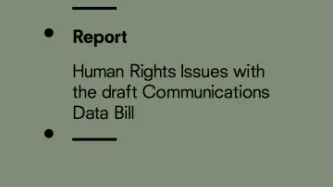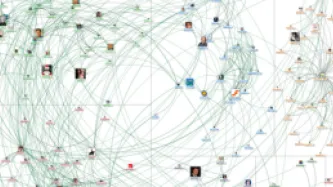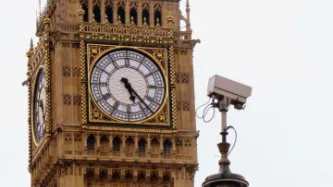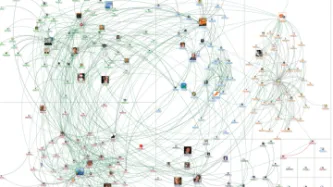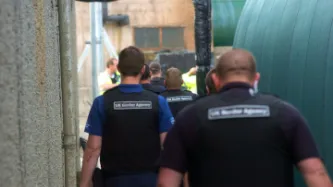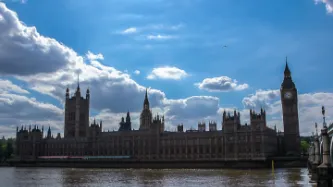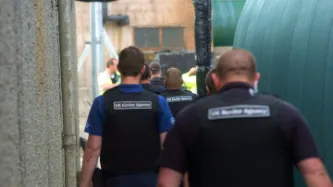Search
Content type: Report
This report was submitted to the Joint Committee on Human Rights. Under the current version of the draft Communications Data Bill, records of every person or entity with whom any given individual has communicated electronically would be collected continuously and stored for one year. These records would include the time of the communication and the location from which it originated.
The Communications Data Bill raises a number of concerns with regards to the right to privacy under Article 8 of…
Content type: News & Analysis
Mass surveillance affects us all
The draft Communications Data Bill - known as the 'Snoopers' Charter' - will dramatically expand police surveillance powers if it is voted into law. Innocent citizens would have all their communications and online activity monitored, all of the time. The government would store information about who we're texting, what we're searching for on Google and who we're friends with on Facebook. Police and HM Revenue and Customs officers would be able to access this…
Content type: News & Analysis
The Home Office has been planning a grab for new communications surveillance powers since 2006; today, the Draft Communications Data Bill established in legislative language their ambitions.
Yes, as they will point out, it isn't their the full scope of their ambitions. In 2008, under Labour, they proposed the idea of a vast centralised database of the nation's communications data. In 2009 they abandoned the idea of a central database. Since then, a new government has been elected,…
Content type: Press release
The government today published a draft version of a bill that, if signed into law in its current form, would force Internet Service Providers (ISPs) and mobile phone network providers in Britain to install 'black boxes' in order to collect and store information on everyone's internet and phone activity, and give the police the ability to self-authorise access to this information. However, the Home Office failed to explain whether or not companies like Facebook, Google and Twitter will be…
Content type: News & Analysis
On Thursday 19th April, Privacy International - in partnership with the LSE, the Foundation for Information Policy Research, Open Rights Group and Big Brother Watch - hosted Scrambling for Safety 2012, a discussion of the Home Office's new plans for mass interception in the UK. Around 200 people turned up (despite the sporadic but torrential rain!), and the number of insightful, well-informed questions from the audience proved to us that the Home Office is not going to…
Content type: News & Analysis
It is an increasingly common tactic of governments to say very little about a proposed policy, wait for opponents to start speaking publicly about it and then seize gleefully upon any error, accusing their opponents of peddling 'myths'. This allows officials to spend more time talking about what the policy isn't, and less time explaining what the policy actually is.
One recent example of this has been the Home Office's approach to its policy for 'modernising' communications surveillance. …
Content type: News & Analysis
In September last year, David Cameron told the UN general assembly: "As people in north Africa and the Middle East stand up and give voice to their hopes for more open and democratic societies, we have an opportunity – and I would say a responsibility – to help them." The Arab Spring uprisings had provided a chink of light for those living under repressive regimes, and it was now up to western democracies to help them throw open the door to a bright new future.
Yet over the past six…
Content type: News & Analysis
What do we know?
Very little. The Communication Capabilities Development Programme (CCDP) is going to be included the Queen's Speech next month and we still haven't had public confirmation of the details. What we do know is that there have been secret briefings to MPs designed to scare them into compliance, and secret briefings to industry that were originally designed to calm their fears (but in fact have only served to increase their outrage).
What was previously proposed?
In 2009 the Home…
Content type: Press release
An internal Liberal Democrat briefing on Home Office plans to massively expand government surveillance was today passed to Privacy International. The document contains significant evasions and distortions about the proposed 'Communications Capabilities Development Programme' (CCDP), and is clearly intended to persuade unconvinced Lib Dem MPs to vote in favour of the proposal.
The document contains a section entitled 'Remember, under Labour' consisting of a list of the previous government's…
Content type: News & Analysis
For the past 18 months, I've been investigating the export of surveillance technologies from Western countries to despotic regimes, but I never thought I'd see a democratic government proposing to install the kind of mass surveillance system favoured by Al-Assad, Mubarak and Gaddafi. Yet the Home Office's latest plans would allow the authorities unprecedented levels of access to the entire population's phone records, emails, browsing history and activity on social networking sites,…
Content type: News & Analysis
News emerged today that the new National Crime Agency will be completely exempt from Freedom of Information laws, creating a ‘cloak of secrecy’ around the organization.
The National Crime Agency (NCA), the government’s proposed successor to the Serious and Organised Crime Agency (SOCA), will target organized crime, fraud, child exploitation and smuggling. Described in the media as an ‘FBI-style’ intelligence agency, the NCA is proposed to become fully operational in December 2013.
But…
Content type: Press release
At 12.45pm today, Wikileaks released hundreds of brochures, presentations, marketing videos and technical specifications exposing the inner workings of the international trade in surveillance technologies. Many of these documents were gathered by PI’s Eric King while undercover at industry-only conferences and trade shows in London, Paris and Washington DC.
Mr King joined Julian Assange, security researcher Jacob Appelbaum, Stefania Maurizi of Italian news weekly L’Espresso, Jean-Marc Manach…
Content type: News & Analysis
Prime Minister David Cameron may not be quite the “pitiless blank-eyed hell wraith” Charlie Brooker portrayed in yesterday’s Guardian, but he does have some pretty frightening ideas about the Internet. This morning the Prime Minister announced, at a meeting with the Christian charity Mother’s Union, that four of the UK’s biggest ISPs will henceforth require users to opt in if they want to view pornographic material – thereby creating a commercially-owned and controlled database of…
Content type: Press release
Privacy International today published documentation that establishes a deliberate cover-up by the UK Information Commissioner’s Office (ICO) of a failure to uphold its responsibility to enforce the Data Protection Act.
A request under the Freedom of Information Act by PI and No-CCTV has revealed a conflict of interest in the ICO’s mandate and a fundamental failure of process within the Office. The material disclosed proves that the ICO conspired to delay the FOIA request, and attempted to…
Content type: News & Analysis
At the moment there is much anger about a UK Border Official who, according to the BBC, relaxed "identity checks on non-EU nationals" over the summer. This 'relaxation' then was claimed to have placed the UK at risk because names of visitors were not checked against 'watchlists'. This news is unsurprising in some respects, and quite shocking in others.
The controversy centres on the call to temporarily suspend checking the e-passports of individuals from outside of the EU…
Content type: Press release
Privacy International’s Director-General Simon Davies has today written to Prime Minister David Cameron and Creativity Software CEO Richard Lee following revelations that Kingston-based Creativity sold a location-tracking system to Iran.
Mr Davies expressed his disappointment that the Coalition has taken no steps whatsoever to stop the export from Britain of surveillance technology to repressive regimes in the Middle East and North Africa, where it is used as a tool of political control…
Content type: News & Analysis
Following an extensive campaign by Privacy International and our network of groups in the United Kingdom, the UK Government has decided to abandon its current plans for data sharing legislation.
The government has announced that it will immediately abandon clause 152 of the Coroners and Justice Bill, following on from an open letter that Privacy International sent to the Justice Secretary earlier this week.
As the Sunday Telegraph observed, the eloquence of the letter together with the…
Content type: News & Analysis
Two months ago, the UK Borders Agency began fingerprinting foreign children over six years old, from outside the European Economic Area and resident in Britain. At the time Jacqui Smith was congratulated for her tough line on issuing identity cards to foreign residents and no one, not even parliament, noticed that the biometric requirements applied to children of six. And parliament didn't know because it was never asked to approve the policy.
Nowhere in the world are you more powerless than…
Content type: News & Analysis
Under the Terrorism Act 2000, police agencies in the UK have the power to stop and search within ‘security zones’ as established under order by the Home Secretary. Since February 2001, London has been designated as a security zone.
When this power was used in 2003 at a London protest against the arms trade, the protestors appealed to the courts on privacy grounds. The UK House of Lords ruled that although a stop and search in public was possibly an interference under Article 8(1) of the ECHR,…
Content type: News & Analysis
Privacy International's recent complaint to the UK Information Commissioner has threatened to bring to a halt an imminent plan to fingerprint all domestic and international passengers departing from Heathrow's Terminal 1 and Terminal 5, due to begin on March 27th. The British media is reporting that in response to PI's complaint, the Information Commissioner has advised that passengers should only accept fingerprinting "under protest" until our complaint is resolved.
The prospect of…
Content type: Press release
Privacy International (PI) today filed additional complaints with authorities in Japan, Israel, Korea, Taiwan, Province of China, Thailand and Argentina. On June 27th PI filed simultaneous complaints with Data Protection and Privacy regulators in 32 countries concerning recent revelations of secret disclosures of records from SWIFT to US intelligence agencies.(1)
The disclosures involve the mass transfer of data from SWIFT in Europe to the United States, and possibly direct access by US…
Content type: News & Analysis
Booz Allen Hamilton, Inc., a prominent defence and intelligence consulting and engineering firm, has been hired as an outside "independent" auditor of the CIA and Treasury Department's Terrorist Finance Tracking Program ("TFTP"), which monitors banking transactions made through the Society for Worldwide Interbank Financial Telecommunication (SWIFT). Though Booz Allen's role is to verify that the access to the SWIFT data is not abused, its relationship with the U.S. Government calls its…
Content type: News & Analysis
The Criminal Justice Act 2003 further widens the circumstances in which a non-intimate sample may be taken from an individual. The Act merely requires that in order to take a non-intimate sample without consent, a person is arrested for a recordable offence - a significant advancement on the requirement that the individual was charged with a recordable offence and one that will encompass countless more individuals.
Section 10 of the CJA 2003 alters the taking of non-intimate samples, but in a…
Content type: News & Analysis
A campaign to eliminate the DNA profiles of 24,000 innocent juveniles from the database has been instigated by a Conservative Member of Parliament after a lengthy battle to remove the record of a concerned constituent’s son who was arrested as a result of misidentification. The National DNA Database currently holds the records of 750,000 juveniles – some of whom have been convicted of offences but many of whom were only charged, cautioned, questioned or were mere witnesses to incidents.
The…
Content type: News & Analysis
The UK currently maintains the largest DNA Database in the world and is encouraging other governments to implement similar systems in their respective countries. Using international organisations such as Interpol, participant governments will be able to share and exchange the DNA profiles of their citizens subject to vague legislative provisions, such as 'the interests of crime detection and prevention'.
Background
The successful prosecution of a serial sex offender in 2004 led to…
Content type: News & Analysis
The most significant amendment of the Criminal Justice and Police Act 2001 (hereafter 'CJPA') is the amendment to the circumstances in which samples may be retained. The Act allows for retention of samples even where charges are dropped or the individual is cleared of the offence. It also allows for such samples to be used for (future) purposes related to the detection and prevention of crime, both in the UK and abroad.
In relation to the taking of samples, the CJPA 2001 amends PACE by…
Content type: News & Analysis
The Criminal Justice and Public Order Act 1994 was the first serious expansion of the powers to take samples, particularly non-intimate samples – which included mouth swabs and saliva in addition to hair samples: both of which provide DNA information. Such samples could be taken without the consent of the individual if he is charged with a recordable[1] offence, a significant advance on the earlier requirement that the individual is charged with a 'serious arrestable offence'.
During the…
Content type: News & Analysis
Although DNA matching was first used to catch an offender in 1987, the Police and Criminal Evidence Act 1984 is instrumental in defining police treatment of suspects in the early stages of an investigation. Despite the fact that the Act has been amended on numerous occasions since its inception, analysis of the original legislation provides the starting point to map out the development and expansion of the circumstances in which samples containing DNA can be taken from individuals.
This early…
Content type: News & Analysis
The UK Presidency's first formal report, entitled 'Liberty and Security: Striking the Right Balance', was released today. It argues the case for new and expansive policies on communications surveillance, biometrics, travel surveillance, and CCTV. In fact, it promises to take UK policy failures to the European level.
Communications data retention
Despite having only a voluntary framework in UK law, the UK Presidency of the EU is pursuing mandatory data retention in a framework decision…
Content type: News & Analysis
In a tipping of the hat to the Americans, the UK is set to establish the largest border surveillance programme to date. The new programme will involve the collection of biometrics on visitors to the UK, the generation of vast information stores on all Britons and visitors, and a profiling system to identify those worthy of further scrutiny.
This programme does not merely apply to combatting terrorism however; it is for use for general policing matters.
We have archived the 'partial'…
